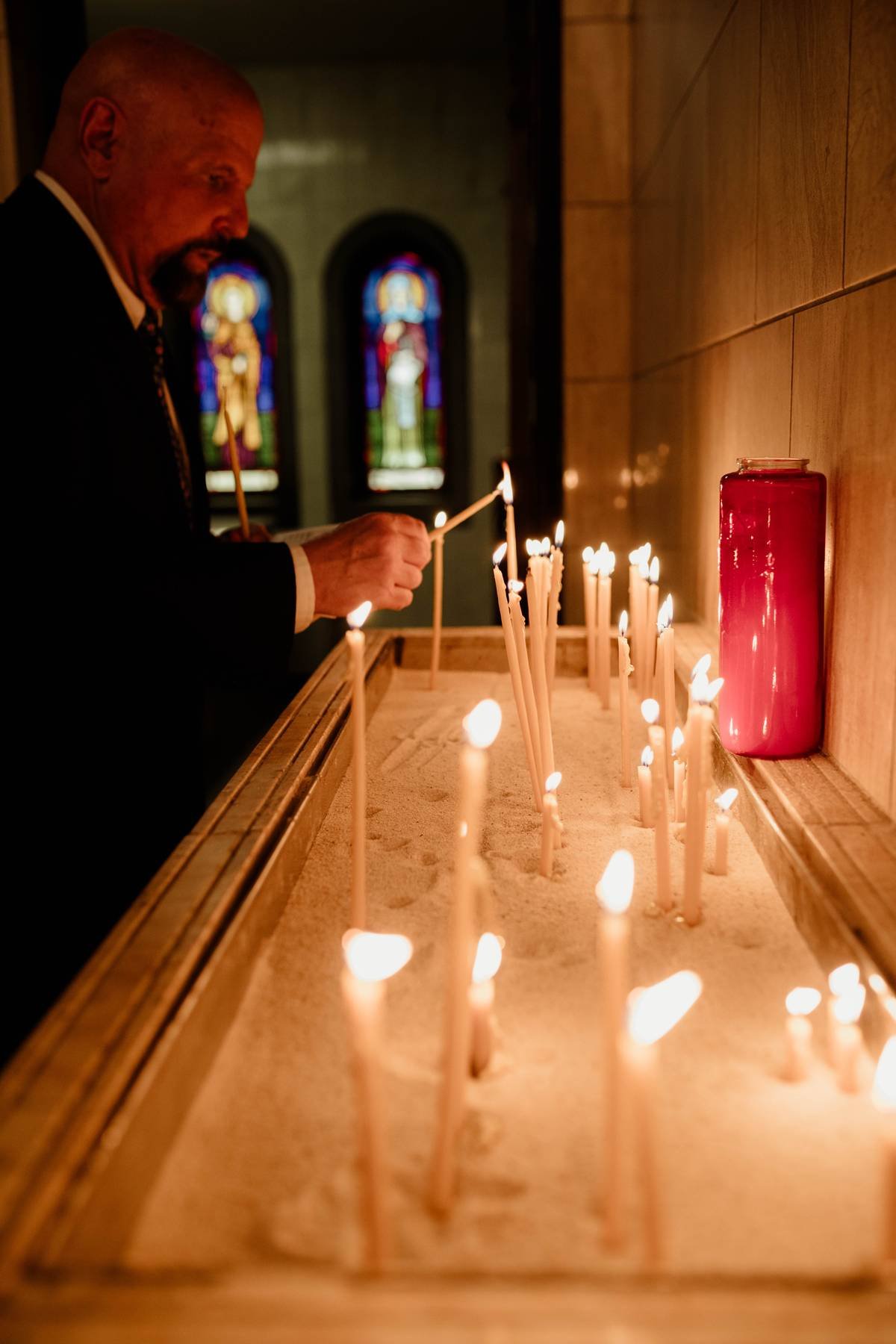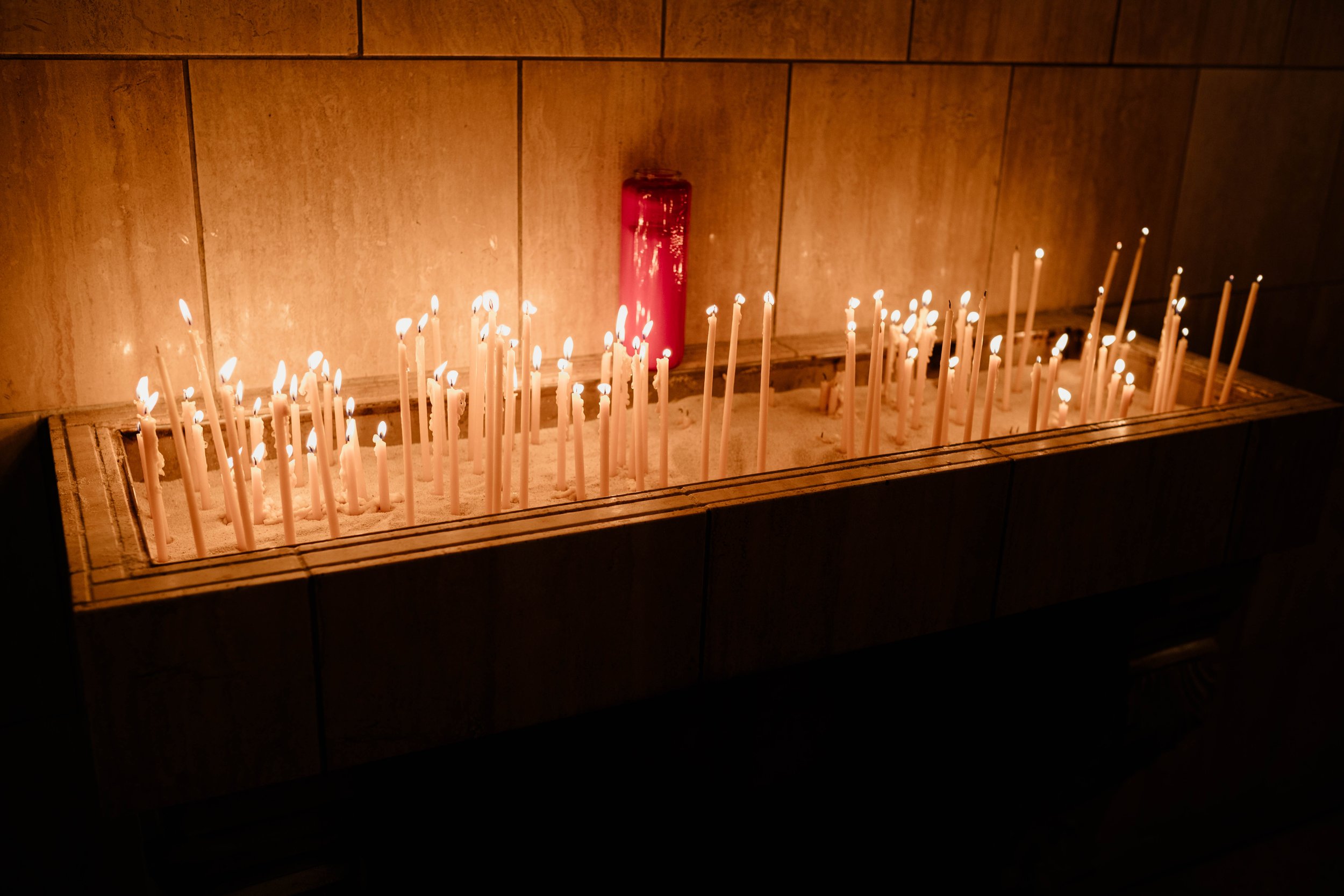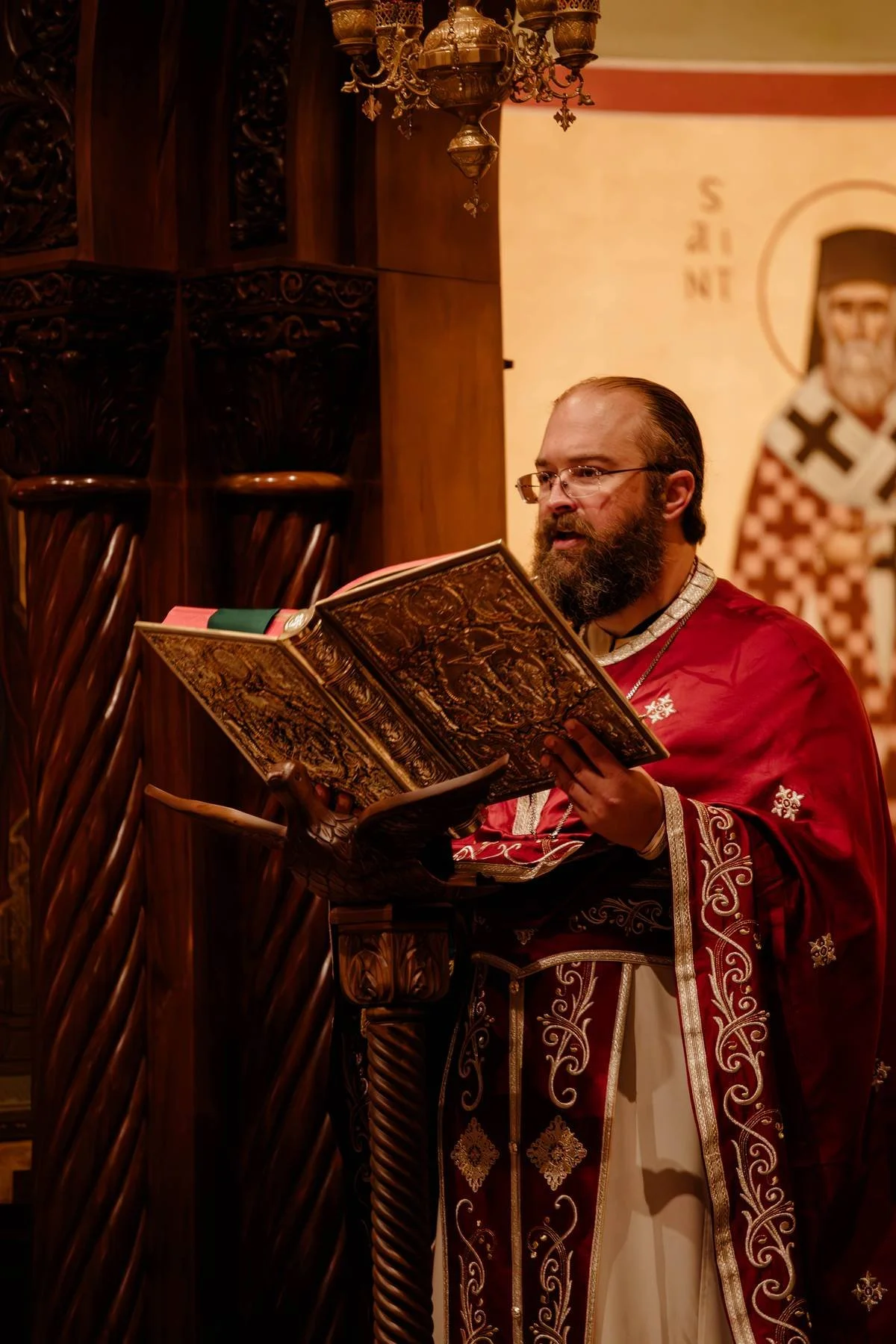
Our Faith
THE NICENE-CONSTANTINOPOLITAN CREED
Our creed, established at the First and Second Ecumenical Councils in 325 and 381 A.D., is the symbol of our faith and commitment to Christ and His teachings that guide our lives.
I believe in one God, the Father, the Almighty, Creator of heaven and earth, and of all things visible and invisible;
And in one Lord, Jesus Christ, the only-begotten Son of God, begotten of the Father before all ages;
Light of Light, true God of true God, begotten, not created, of one essence with the Father, through Whom all things were made;
Who for us and for our salvation came down from the heavens and was incarnate by the Holy Spirit and the Virgin Mary, and became man;
Crucified for us under Pontius Pilate, He suffered and was buried;
Rising on the third day according to the Scriptures;
And ascending into the heavens, He is seated at the right hand of the Father;
And coming again in glory to judge the living and the dead, His Kingdom shall have no end;
And in the Holy Spirit, the Lord, the Giver of life, Who proceeds from the Father, Who together with the Father and the Son is worshipped and glorified, Who spoke through the prophets;
In one, holy, catholic, and apostolic Church;
I acknowledge one baptism for the remission of sins;
I expect the resurrection of the dead;
And the life of the age to come.
Amen.
Our Worship is…
Beautiful.
One of the most apparent characteristics of our worship is its beauty. The iconography, the priestly vestments, the hymns and chants, and other details all harmonize to create a sacred, beautiful atmosphere that orients us to worship in spirit and in truth.
Immersive.
Each attendee at our worship is a participant in the worship. The Greek word for liturgy is leitourgia, which literally translates to “the work of the people.” When we come together for services, we are working together to worship the Lord through the model handed down to us by the apostles and under the guidance of the clergy.
Apostolic.
When Christ established his Church on earth, He granted authority to His apostles to continue His ministry and lead the Church. Since that time, their authority and the Tradition of the apostolic Church has been handed down through generations to the present day.
Biblical.
Each of our services are filled with Scripture. Our hymns and chants often contain Psalms and Biblical stories, and Epistle and Gospel readings are a prominent aspect of our worship. Biblical scenes are depicted in our iconography, and our Tradition is rooted in Scripture.
A Brief Overview of Our Christian Faith
Orthodox Christianity is one of the major branches of Christianity. It is characterized by its continuity with apostolic tradition, rich liturgical worship, and adherence to ancient practices. While the Orthodox Church doesn’t have a “systematic” theological approach, it does have some key doctrinal beliefs and traditions that undergird its theology. Truly knowing the beliefs of the Orthodox Church requires participation and personal experience in its traditions and worship.
Doctrinal Beliefs:
Holy Trinity: We affirm the doctrine of the Holy Trinity — the Father, the Son (Jesus Christ), and the Holy Spirit.
Incarnation: Jesus Christ is the incarnate Son of God who became fully human, born of a Virgin, for the salvation of humankind and renewal of creation.
Authority and Tradition:
Sacred Tradition: We place a strong emphasis on the authority of sacred tradition, which includes not only written scriptures but also liturgical practices, teachings of the Church Fathers, and decisions of ecumenical councils.
Authority: The Holy Spirit is the arbiter of the Church, who we believe guides the Church as a whole.
Ecumenical Councils: The Ecumenical Councils are considered the highest ecclesiastical authority of the Church. There have been seven councils (4th-8th century AD) that established the doctrine of Jesus Christ and the Holy Trinity.
Ecclesiastical Structure:
Catholicity: The Orthodox Church is not rooted in any particular culture or ethnic group. It adapts, without losing its identity, to meet the needs of each culture and people. It is open and available to all.
Autocephalous Churches: The Orthodox Church is organized into autocephalous (independent and self-governing) churches, each headed by a patriarch or archbishop. These churches are effectively grouped according to historical ethnic backgrounds but are united in a common faith and communion.
Worship and Liturgy:
Iconography: In Orthodox Christianity, icons are not worshiped nor prayed to but rather are shown honor and venerated according to the persons that they depict who in their lives glorified God. The honor we give to them is thereby ultimately given to God. Icons are helpful in that they offer a means of educational instruction while also orienting us towards prayer.
Liturgy: Liturgical worship is central to the life of the church. There are established regular services, and we are transformed through our participation in them. Liturgy consists of receiving gifts from God, transforming those gifts, and offering them back to God. Those gifts, in turn, are transformed again by God and offered back to the people. It is through this recurring synergy that we commune with God and one another.
Spirituality and Mysticism:
Mystical Theology: Orthodox Christianity places a strong emphasis on mystical theology which is the experience of God through prayer, fasting, and the sacraments.
Mysteries: Orthodox Christianity does not have a set number of mysteries (sacraments). Rather, we live in the realization that all of life is sacramental; however, there are those mysteries of the church that are set apart as special within the life of the Church. These include baptism, chrismation, confession, holy unction (anointing of the sick), marriage, and ordination. The Eucharist itself is not a sacrament per se but rather the central mystical reality that gives every sacrament meaning and fulfillment.
This brief overview is in no way a substitute for the lived experience available through participation in the life of our church. When you are ready, we invite you to come and see for yourself!
“…He who has begun a good work in you will complete it…”
Philippians 1:6
If you are interested in learning more about the faith, would like to join, or perhaps are returning to the faith, we encourage you to take the next steps and meet with one of our clergy.

You belong.
We are grateful to have you with us on this journey.

